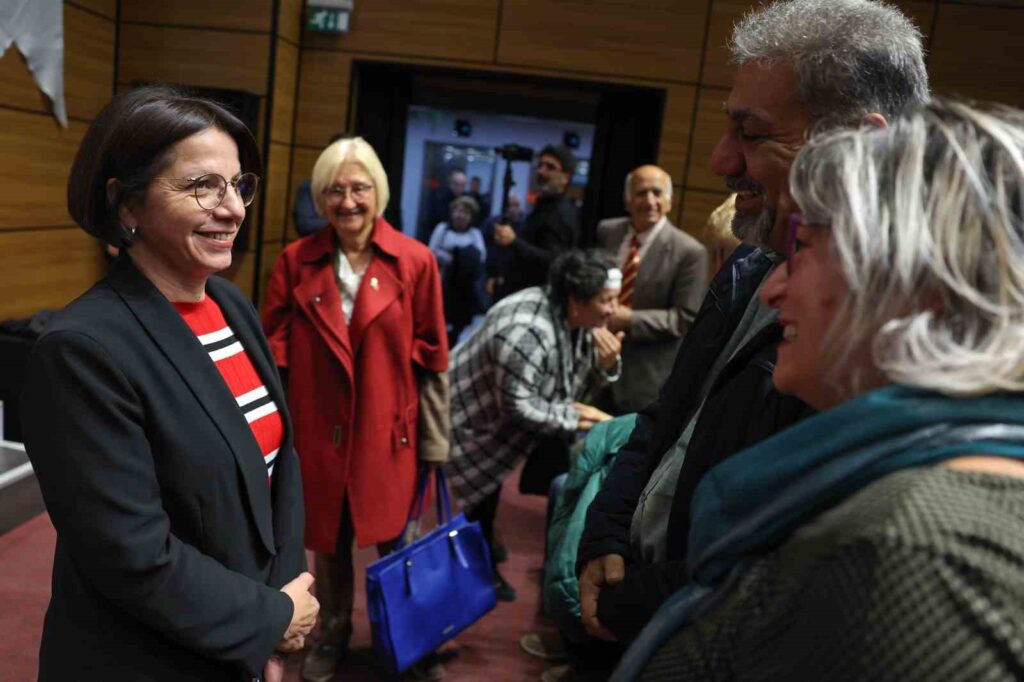Global warming has hit beekeepers, reducing the yield from one thousand tons to five hundred tons
In Elazığ, the change in meteorological memory and extreme events due to global warming has also affected beekeepers. The honey harvest, which should have taken place in August, started in July due to excessive temperatures and seasonal shifts, resulting in a 50% decrease in yield, down to a thousand…

In Elazığ, changes in meteorological memory and extreme events due to global warming have also impacted beekeepers. The honey harvest, which should have taken place in August, started in July due to excessive heat and seasonal shifts, resulting in a 50% drop in yield from 1,000 tons to 500 tons. Beekeepers who began honey extraction to receive the fruits of their labor throughout the year were disappointed.
The climate change caused by global warming is leading to extreme meteorological events today. Many meteorological events, such as extreme heat, dust transport, sudden rainfall, and the temperature difference between night and day, have primarily affected bees and beekeepers. The honey harvest, which should have started in August, began in mid-July this year due to excessive heat and seasonal shifts, significantly impacting the yield. In Elazığ, 1,200 active beekeepers produce 1,000 tons of honey from 100,000 hives annually, but this year it dropped to 500 tons, a 50% decrease. Elazığ Beekeepers Association President Chemist Fırat Canbay stated that harvesting during these periods caused a narrowing of the time interval in the flow of pollen and nectar, leading to a decline in yield.
Canbay expressed that beekeepers are starting to see the results of their efforts, saying, “In past years, this harvest period occurred in August. However, this year it began in mid-July. There are about 1,200 registered breeders in our region, with hive numbers exceeding 100,000. In terms of honey production in our region, we used to have an average of 1,000 tons. Now we have dropped to around 500 tons. One of the main reasons for this is climate change due to global warming and extreme meteorological events. Harvesting during these times has led to a narrowing of the time interval for pollen and nectar flow. The narrowing of this time interval is one of the biggest factors contributing to the decrease in productivity.”
“We are at a critical threshold for sustainability”
Canbay mentioned that they have been facing productivity declines due to the disruption of meteorological memory in the Elazığ region for the last five years, stating, “This problem has started to become chronic. We are at a critical threshold for sustainability. If this critical threshold falls below five kilograms, it will negatively affect the sustainability of the beekeeping sector here. The beekeeping sector is entirely in contact with nature. Nature contributes 75%, while the breeder contributes 25% to the sector. The stronger nature is and the more it continues to thrive, the more positively it affects productivity. Unfortunately, we have faced adversities in nature in this region. Especially, we did not have a productive spring season in the region. If spring is productive, bee colonies become strong. However, spring was dry. In May, we faced significant rainfall. Therefore, the nectar flow in these regions used to start in June and continue until the end of July. Historically, dust transport, extreme heat, and sudden rainfall were not issues in the region. At this point, especially this year, facing sudden rainfall and extreme heat has led to a decrease in yield and harvest, negatively affecting the sustainability of beekeeping.”
“Without bees, there are no humans, agriculture, or nature”
Beekeeper Emin Yaylaz stated, “I am a semi-nomadic beekeeper. I started in 2009 with 8 hives. I have been a beekeeper for 15 years. I currently have over 200 hives. This year has been really bad. For the first time, I did not add boxes to my hives. The rains, winds, dust transport, excessive heat, and very cold nights, as well as sudden changes in weather, have caused a decline in productivity. Currently, the nectar in nature has dried up. The bees could not benefit from this, and it reflected poorly on us. Spring was also bad. We could not maintain the existing bee population and prepare for honey production. This year has passed as a bad year. Hopefully, we will not experience such a year again. We hope for better years ahead. If this continues, beekeeping will face dire situations. Without bees, there are no humans, agriculture, or nature. Everything begins with bees.”







